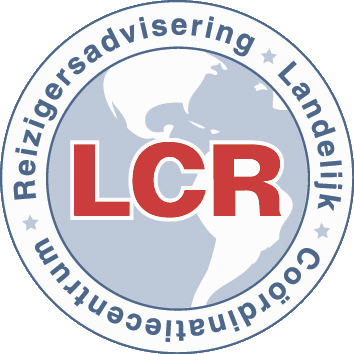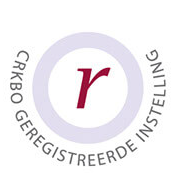Program
08:30 Registration
09:00 Opening and Welcome
09:10 Accidental hypothermia – no one is dead until warm and dead!
09:45 Can humans adapt to cold?
10:30 Break
11:00 COLD IS COOL – How humans survive an avalanche
11:45 Life as a volcanic ski doctor
12:30 Lunch
13:30 Cold water immersion
14:15 Advances in Frostbite management
15:00 Break
15:30 Extreme Mountain Medicine, where ambulances can’t go.
16:15 Surviving Antarctica
16:50 Final Remarks
17:00 Reception
Keynote speakers
Accidental hypothermia – no one is dead before warm and dead!
Anna BÃ¥genholm, MD
 We are going to kick off the conference with the miraculous survival story of Anna BÃ¥genholm, a Swedish radiologist, who survived the lowest body temperature ever recorded. She was skiing off-piste when she lost control during a descent; fell into a hole in the ice covering a mountain stream. She was dragged headfirst into the freezing melt water. Trapped hopelessly beneath eight inches of ice for 80 minutes, she was slowly freezing to death. Luckily she is able to share her story with us.
We are going to kick off the conference with the miraculous survival story of Anna BÃ¥genholm, a Swedish radiologist, who survived the lowest body temperature ever recorded. She was skiing off-piste when she lost control during a descent; fell into a hole in the ice covering a mountain stream. She was dragged headfirst into the freezing melt water. Trapped hopelessly beneath eight inches of ice for 80 minutes, she was slowly freezing to death. Luckily she is able to share her story with us.
COLD IS COOL – How humans survive extreme cold
Professor Hermann Brugger, MD
 As general practitioner, mountain rescue physician, head of the EURAC-Institute of Mountain Emergency Medicine and associate professor at Inssbruck Medical University, Hermann Brugger has a comprehensive expertise on extreme cold. As a scientific author, he has published approximately 170 scientific articles and 50 book chapters, he has received several awards for his research. His main fields of research comprises cold injuries, hypothermia, avalanche accidents, mountain emergency medicine and mountain rescue.
As general practitioner, mountain rescue physician, head of the EURAC-Institute of Mountain Emergency Medicine and associate professor at Inssbruck Medical University, Hermann Brugger has a comprehensive expertise on extreme cold. As a scientific author, he has published approximately 170 scientific articles and 50 book chapters, he has received several awards for his research. His main fields of research comprises cold injuries, hypothermia, avalanche accidents, mountain emergency medicine and mountain rescue.
First response in cold weather accidents
Will Smith, MD, Paramedic, FAWM

Cold water immersion: better to sink or swim?
 Alex is a part time GP in South Devon, Medical Director of World Extreme Medicine and the Masters Programme in Extreme Medicine, an expedition medic, pre-hospital care doctor and spent 10 years working as helm, medic and search and rescue navigator on the RNLI Torbay Lifeboat. In 2009 he was part of the lifeboat crew that was awarded the Pride of Britain Emergency Services trophy for his role in a serious maritime rescue effort during January gales. At our conference he will talk about the specific challenges of cold water immersion.
Alex is a part time GP in South Devon, Medical Director of World Extreme Medicine and the Masters Programme in Extreme Medicine, an expedition medic, pre-hospital care doctor and spent 10 years working as helm, medic and search and rescue navigator on the RNLI Torbay Lifeboat. In 2009 he was part of the lifeboat crew that was awarded the Pride of Britain Emergency Services trophy for his role in a serious maritime rescue effort during January gales. At our conference he will talk about the specific challenges of cold water immersion.
Advances in Frostbite treatment
Professor Chris Imray, PhD, FRCS, FRCP, FRGS
 As a vascular surgeon Imray is an acknowledged expert in frostbite and non-freezing cold injuries and runs the UK internet telemedicine frostbite service for the British Mountaineering Council. His altitude research began with the Birmingham Medical Research Expeditionary Society in late 1980s, and has continued with the Caudwell Xtreme Everest Research Group and CASE. He summited both Cho Oyu (8201m) and Everest (8550m) and has the dubious distinction of having the second lowest arterial gases ever recorded in an adult (at 8,400m).
As a vascular surgeon Imray is an acknowledged expert in frostbite and non-freezing cold injuries and runs the UK internet telemedicine frostbite service for the British Mountaineering Council. His altitude research began with the Birmingham Medical Research Expeditionary Society in late 1980s, and has continued with the Caudwell Xtreme Everest Research Group and CASE. He summited both Cho Oyu (8201m) and Everest (8550m) and has the dubious distinction of having the second lowest arterial gases ever recorded in an adult (at 8,400m).
Ski field injuries
Tash Burley, MD
 Tash Burley is an anaesthetist in the Highlands of Scotland with special interests in prehospital and retrieval medicine. She spent four seasons working as a ski field doctor on Mt Ruapehu, a volcano on New Zealand’s North Island and has professional qualifications in Avalanche safety. Outside medicine she enjoys ski touring, skimo, paddle boarding, and trail running with her black Labrador Stella. Having just returned from Everest base camp working as a doctor for Everest ER she is now looking for her next adventure.
Tash Burley is an anaesthetist in the Highlands of Scotland with special interests in prehospital and retrieval medicine. She spent four seasons working as a ski field doctor on Mt Ruapehu, a volcano on New Zealand’s North Island and has professional qualifications in Avalanche safety. Outside medicine she enjoys ski touring, skimo, paddle boarding, and trail running with her black Labrador Stella. Having just returned from Everest base camp working as a doctor for Everest ER she is now looking for her next adventure.
Can humans adapt to cold?
Professor Hein Daanen
 Hein Daanen is professor in thermal physiology at VU University, senior scientist at TNO and professor in Fashion Research & Technology at the Amsterdam University of Applied Sciences. His research interests focus on thermal physiology and 3D anthropometry. He has participated in at least 80 publications mostly on physiology, prevention and treatment of hypothermia.
Hein Daanen is professor in thermal physiology at VU University, senior scientist at TNO and professor in Fashion Research & Technology at the Amsterdam University of Applied Sciences. His research interests focus on thermal physiology and 3D anthropometry. He has participated in at least 80 publications mostly on physiology, prevention and treatment of hypothermia.
Surviving Antarctica
Floris van den Berg
 Floris is one of our very own Advanced Wilderness Life Support instructors. As a GP and expedition doctor he fulfills his strong desire to travel and explore the world. Currently he is working as a research doctor for the European Space Agency (ESA) at Concordia Station on Antarctica. Where he is conducting research on the psychological and physiological effects of chronic hypoxia, hypobaric pressure and isolation when overwintering in Antarctica.
Floris is one of our very own Advanced Wilderness Life Support instructors. As a GP and expedition doctor he fulfills his strong desire to travel and explore the world. Currently he is working as a research doctor for the European Space Agency (ESA) at Concordia Station on Antarctica. Where he is conducting research on the psychological and physiological effects of chronic hypoxia, hypobaric pressure and isolation when overwintering in Antarctica.




